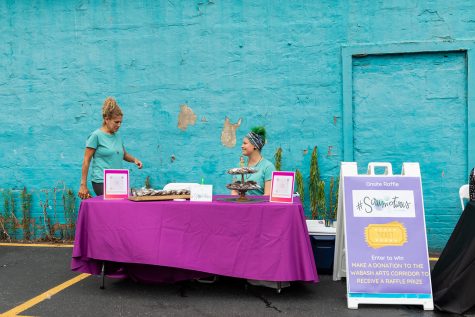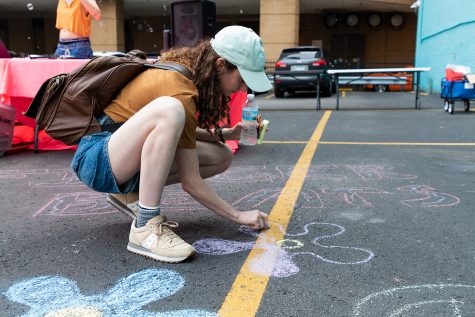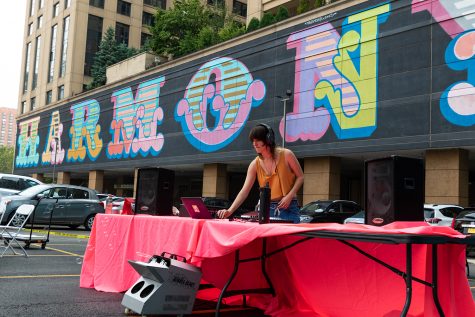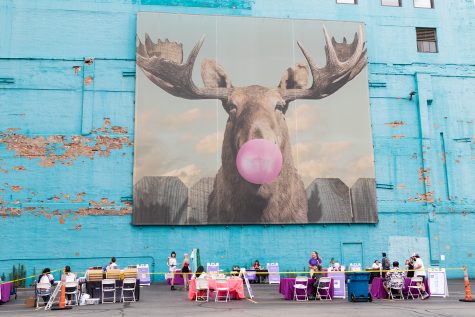WAC is back: New murals on Wabash Arts Corridor will celebrate women suffragists and female creators
July 27, 2021

In a parking lot near the intersection of Wabash Avenue and Ida B. Wells Drive, female vendors filled the lot in commemoration of the Wabash Arts Corridor’s upcoming murals, honoring Chicago female suffragists who fought for the right to vote.
Jasmina Cazacu, a muralist based in Chicago, will paint the suffragist mural on the 33 E. Ida B. Wells Drive building, just west of the Moose Bubblegum Bubble mural, which will remain in place. Dorian Sylvain will create a text-based sister mural on the University Center, 525 S. State St.
Suffragists Ida B. Wells, Jane Adams, Grace Wilbur Trout, Fannie Barrier Williams, Myra Bradwell, Mary Fitzbutler Waring, Frances E. Willard, Mary Livermore, Catherine Waugh McCulloch and Agnes Nestor will be honored in the upcoming murals.

The event was produced by Shannon Bourne, student activities director and adjunct faculty member in the Business and Entrepreneurship Department, who teaches the “Events Management Practicum” course.
Alexa Grosz, senior music business major and a student in Bourne’s class, was the marketing director of “WAC is back.” Grosz said the class brainstormed ideas around what their client, the Wabash Arts Corridor—affectionately known as WAC—was looking for.
“[WAC murals are] very central to the campus, so as Columbia students, we felt that was kind of involving us by default,” Grosz said. “It’s something that we pass every day, so we wanted to do something that would include a younger crowd as well as including the South Loop community.”
Rose Café, Ballot Z, Tropicake Chicago, the League of Women Voters, #Scrumptious, Miranda Randel and Sedona Hope Design, which is run by Chronicle Lead Graphic Designer Sedona Steffens, were vendors at the event, which took place July 20. Each vendor sold their own items, including pastries, art prints, jewelry and books.

Erma Cucena-Price, the operator of Tropicake—a pastry business that highlights Filipino desserts infused with ube jam—said she started her business during the pandemic. She worked as a head chef until her place of work closed permanently. Price started selling her products at farmers markets, but said she hopes to find a permanent space for Tropicake by next year.
“There are more women now who are strong, independent women who are not afraid to start their business just like me,” Cucena-Price said. “It’s really amazing.”
Iesha Malone is a representative of Rose Café, a minority-owned bookstore coming to the South Side of Chicago.
According to Rose Café’s website, the bookstore “was born during the Black revolution of 2020.”
“Rose Café is committed to bringing Black business to a predominantly Black community,” according to its website.”In creating this space, we hope not only to promote Black authors, artists, and entrepreneurs; we hope to continue to inspire the next generation to give back to their community.”

Malone said it was exciting to be in a community setting again.
“I think during COVID, a lot of us found out about a lot of our talents, so with restrictions being lifted, we get to actually bring light to some of the things [people] thought about or wanted to do,” Malone said.
Malone said this particular event was important because women are the driving force of change in a community.
“I think that women are actually the backbone to a lot of things,” Malone said. “If we can support and uplift each other, then we can change the community.”







